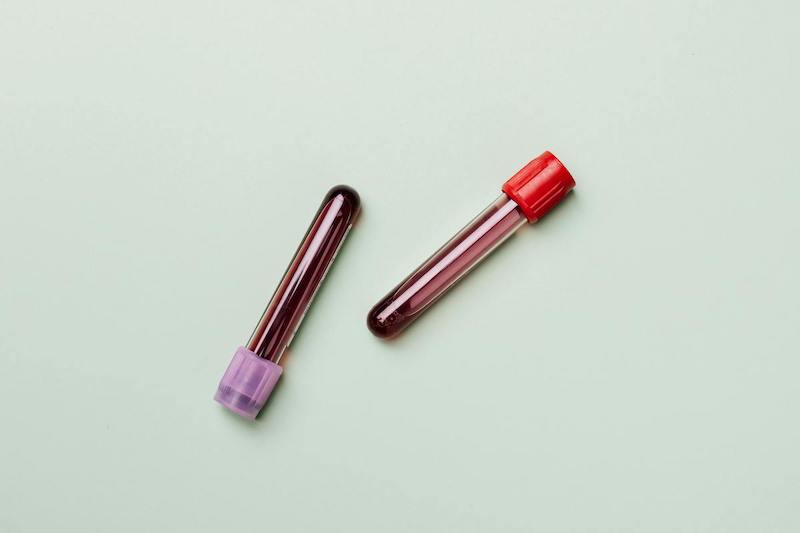Before we start, this article focuses on people at the beginning of their conception journey using donor sperm to conceive. If you’re in a different place in your family building journey, explore these articles for information on egg donors and surrogates or fertility treatments.
As a midwife, I’ve supported hundreds of queer folks and solo parents throughout their trying to conceive (TTC) process. One question they often ask me in the preconception phase is “Should I get my fertility tested before I start my TTC journey?”

The answer is a personal one, particularly for my clients using donor sperm to conceive. Most heterosexual couples do not consider testing before they start trying to get pregnant. In their case, testing often happens if struggles arise and they’re seeking fertility support.
For LGBTQ+ couples using donor sperm, the answer depends on many things — your unique fertility picture and history, where you’re getting your sperm, your experience and comfort level with doctors, and your ideal timeline for conception. You may choose to test before trying to conceive, or you may want to wait until there’s a need for more fertility support.
In this article, we will go through:
- How to know if testing is right for you
- How likely you are to need fertility support
- What tests are offered
Is testing right for you?
Before diving into the statistics and testing options, take a moment to think about all the factors in accessing care. Some people prefer to go through the TTC process outside of the medical system — including an at-home insemination — and others have a sense that they want all the information and whatever interventions are available to make this process go as quickly as possible.
Wherever you are on this spectrum is valid, and is probably connected to your relationship with your current provider, whether or not you’ve felt safe receiving care in the past, and your insurance coverage, among other things.
Here are some of the factors that may influence your decisions:
How likely are you to need fertility support?
One of the challenging aspects to making this decision is that the vast majority of data we have about infertility is based on information from heterosexual couples who struggle to get pregnant. This makes it hard when you are using donor sperm and you don’t know whether or not you will struggle to get pregnant.
Medically, a person qualifies for an infertility diagnosis if:
- They are under 35 and have been trying to conceive (via heterosexual intercourse) for one year without achieving a pregnancy
- They are over 35 and have been trying to conceive (via heterosexual intercourse) for six months
In 2024, the American Society for Reproductive Medicine updated the official medical diagnosis to include social infertility, i.e. people whose relationship status necessitates fertility interventions. This was a big step in that it’s important for queer and solo parents getting access to insurance coverage (yay), but we still don’t have a ton of reliable research on our fertility picture if our issue is lack of access to sperm.
There’s also the reality that, globally, 1 in 6 people experience infertility. So how do you know if you need fertility support? Unfortunately, before starting your TTC journey with donor sperm, you don’t necessarily know.
There’s some data that recommends receiving a fertility workup after six attempts of using donor sperm without achieving a pregnancy. However, this doesn’t take into account the high emotional, financial, and often logistical costs of trying to get pregnant with donor sperm.
In my practice, I’m seeing more and more people opt for fertility testing earlier on in their journey. The financial and emotional cost of trying to conceive is high, and most people opt for as much information about their fertility picture as possible before investing their time and money in the insemination process.
That said, I also have a fair number of clients who want to interact with the medical system as little as possible while growing their family and decline fertility testing, unless the process ends up taking longer than anticipated. Testing is never a bad idea, as long as it makes sense for you. I generally recommend testing either before you begin your process or within six months of trying to conceive.
What tests are offered?
If you decide to proceed with fertility testing at any point in the process, here is what you can expect to encounter at the doctor’s office.
Blood tests
Providers generally offer a series of blood tests to screen for normal hormonal fluctuations in your menstrual cycle, including for follicle-stimulating hormone, estradiol, and progesterone. Anti-Mullerian hormone levels are tested to assess ovarian reserve. Most of these tests are timed to certain points in your cycle, so it can be helpful to learn how to identify your ovulation window.
You may also get non-hormone tests when screening for fertility, such as thyroid tests and vitamin D levels.
Ultrasounds and further testing
In addition to blood tests, your provider will likely recommend a transvaginal ultrasound to check on the anatomy of the uterus and ovaries.
Depending on your health history and where you are in your process, your doctor may also recommend a saline sonogram or a hysterosalpingogram, where they inject either saline or colored dye into the uterus and fallopian tubes. Through these tests, they can rule out conditions like cysts, polyps, or uterine septum, as well as see whether the fallopian tubes are open. There is actually some evidence that this procedure slightly increases pregnancy rates, probably because it helps clear out the fallopian tubes.
Depending on the results of all of these tests, your fertility doctor may recommend interventions such as surgery to remove uterine polyps or ovarian cysts, or using medications to boost ovulation hormones and help you time your inseminations.
Sperm analysis
I always recommend that people using directed (identifed) donors (previously called known donors) ask them to get their fertility tested before beginning the donation process. For people using nonidentified donors, the sperm banks will have already taken care of fertility testing.
Fertility testing for people with sperm consists of getting a semen analysis to assess sperm quality, morphology (shape), and motility (movement). These tests can be done at a fertility clinic or through an at-home test. Some sperm banks offer semen analyses on an à la carte basis as well.
Genetic carrier screening
Getting a genetic carrier screening can be an important part of your family building journey, especially if you know you have a family history of certain genetic traits. This is especially important if you are exploring working with a directed donor who may be a carrier for similar genetic traits as your biological family of origin. There are some fertility clinics that require genetic carrier screening before inseminating with donor sperm.
Closing thoughts
There’s no one-size-fits-all option in family building. In general, my clients who are paying for donor sperm from banks tend to get fertility workups sooner than those who are using directed donors and trying to conceive at home, but you get to decide what testing is right for you and when.
As with everything with this process, I strongly recommend holding as much as possible with an open palm — and treating yourself with gentleness as you navigate all of these complex decisions.
The bottom line
- The decision of whether to get your fertility tested before beginning your TTC process depends on various factors, including your age, health picture, where you’re getting your sperm, and your relationship with the medical system.
- In the absence of strong emotional and financial barriers, getting your fertility tested is never a bad idea, considering that rates of infertility are relatively high.
- The tests available can give you valuable information about your fertility; however, there are still many unknowns throughout this process. No test can tell you with 100% accuracy how your journey will go.
We recognize that readers of ParentData identify in different ways — read more about our approach to gender-inclusive language here.
Community Guidelines













Log in